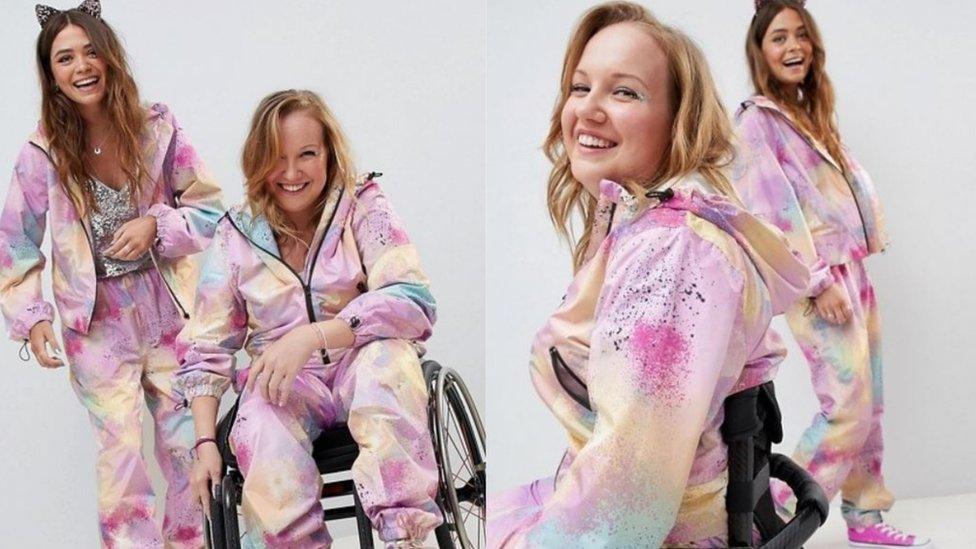Disabled access: 'I gig in my wheelchair every week'
- Published
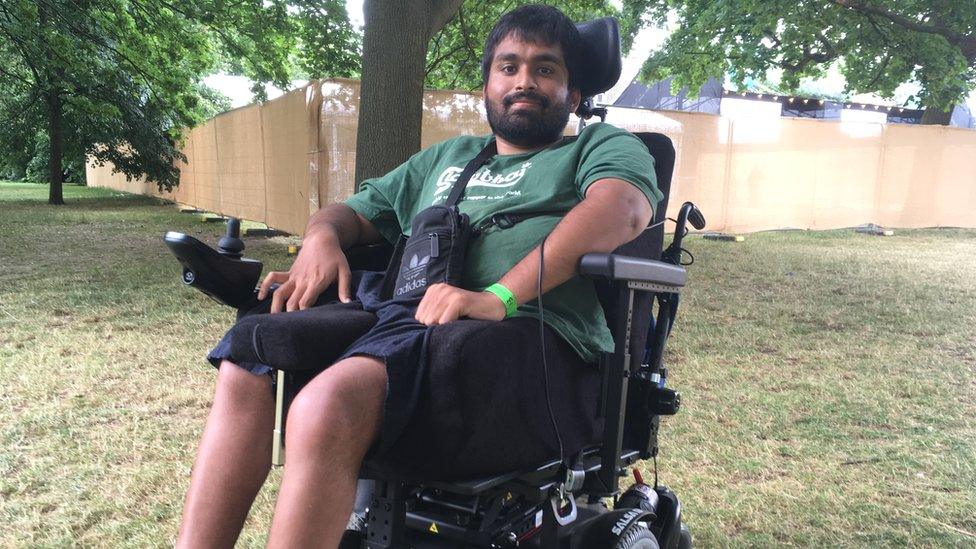
Jamil goes to at least one gig a week
Jamil describes himself as an "avid music fan" - something that seems a bit of an understatement for someone who tries to go to at least one gig a week.
The 31-year-old from London who was born with cerebral palsy and uses a wheelchair says: "I won't let that stop me experiencing things."
And it hasn't. His favourite gig recently was The Cure - he says the goth rock band have still got it.
"They're veterans, they know what they're doing," he laughs.
Jamil travels all over London to concerts, usually accompanied by a support worker. It's not an option - he can't go without one.
One of the most recent gigs he's been to is British Summer Time, which took place last weekend in Hyde Park.
It's one of his favourites not just because of the music - which this year included Florence + The Machine, Blood Orange and Let's Eat Grandma - but because of how accessible it is.
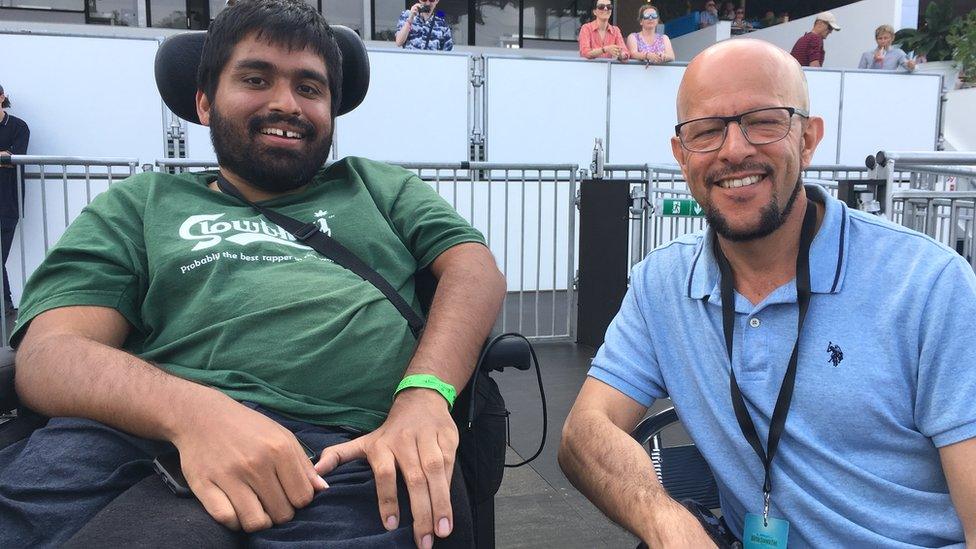
Jamil with his support worker, Renee, on the accessibility platform at British Summer Time Hyde Park
BST recently won a gold award from the group Attitude is Everything, which works to improve access to live music for disabled people.
But the interpretation of what makes an event accessible can vary hugely from gig to gig.
"I've been to venues where they say 'Yeah, yeah, we're accessible," explains Jamil.
"And what they meant was they'll help lift my wheelchair up a set of stairs.
"Mainly it's things like accessible toilets... if they do exist, they'll be locked - they'll be used as store cupboards.
"The dimensions will be really tiny and my electric wheelchair is fairly big and I've had situations where I can't shut the door.
"So I've had to get someone to stand outside while I do my business."
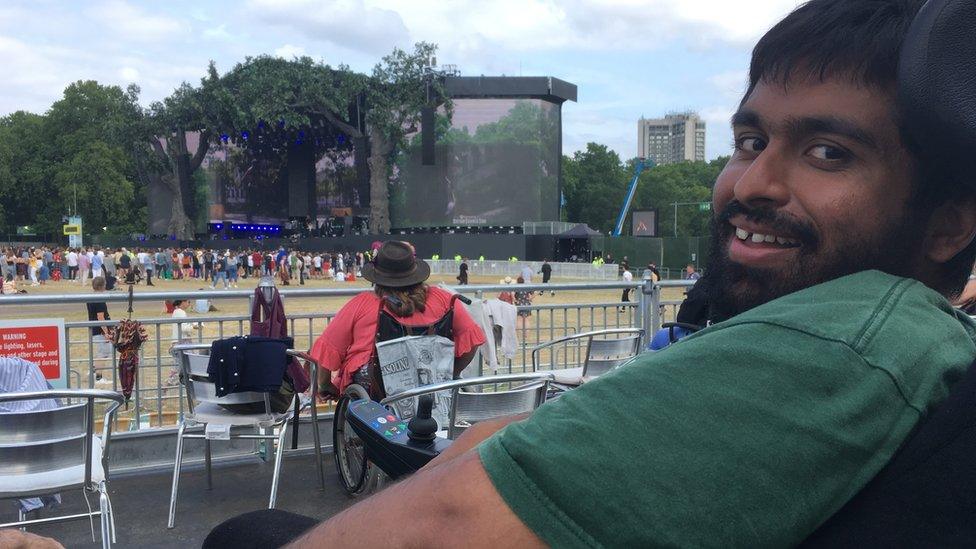
Jamil says the viewing platform by the main stage at BST is the 'best view in the house, for sure'
Jamil says that if he really puts time and effort into planning around a gig, "most of the time" he can go.
"I used to go to Babyshambles' secret gigs when I was a teenager. They were in people's flats, so I've done all kinds of things."
But seeing live music gets pricey - and can be even more so for someone in a wheelchair.
"Just by the virtue that you have to get more transport. Accessible public transport is getting better but it's still not where it needs to be."
Double the cost
More than 3 million disabled people went to a live music event in the past year and disabled music fans make up 11% of the live music audience, according to government statistics.
Jamil finds those statistics surprising considering he often has to buy two tickets: one for him and one for his support worker, which can double the cost.
Complicated and expensive ticketing is something disability rights groups are aware is a major barrier to those with disabilities.
"Usually a disabled person will get a free companion ticket because they can't attend without somebody being with them," Jamil explains.
"But that depends on the venue or the individual promoters.
"So sometimes you have to pay and that's an extra cost before you've even left the house."
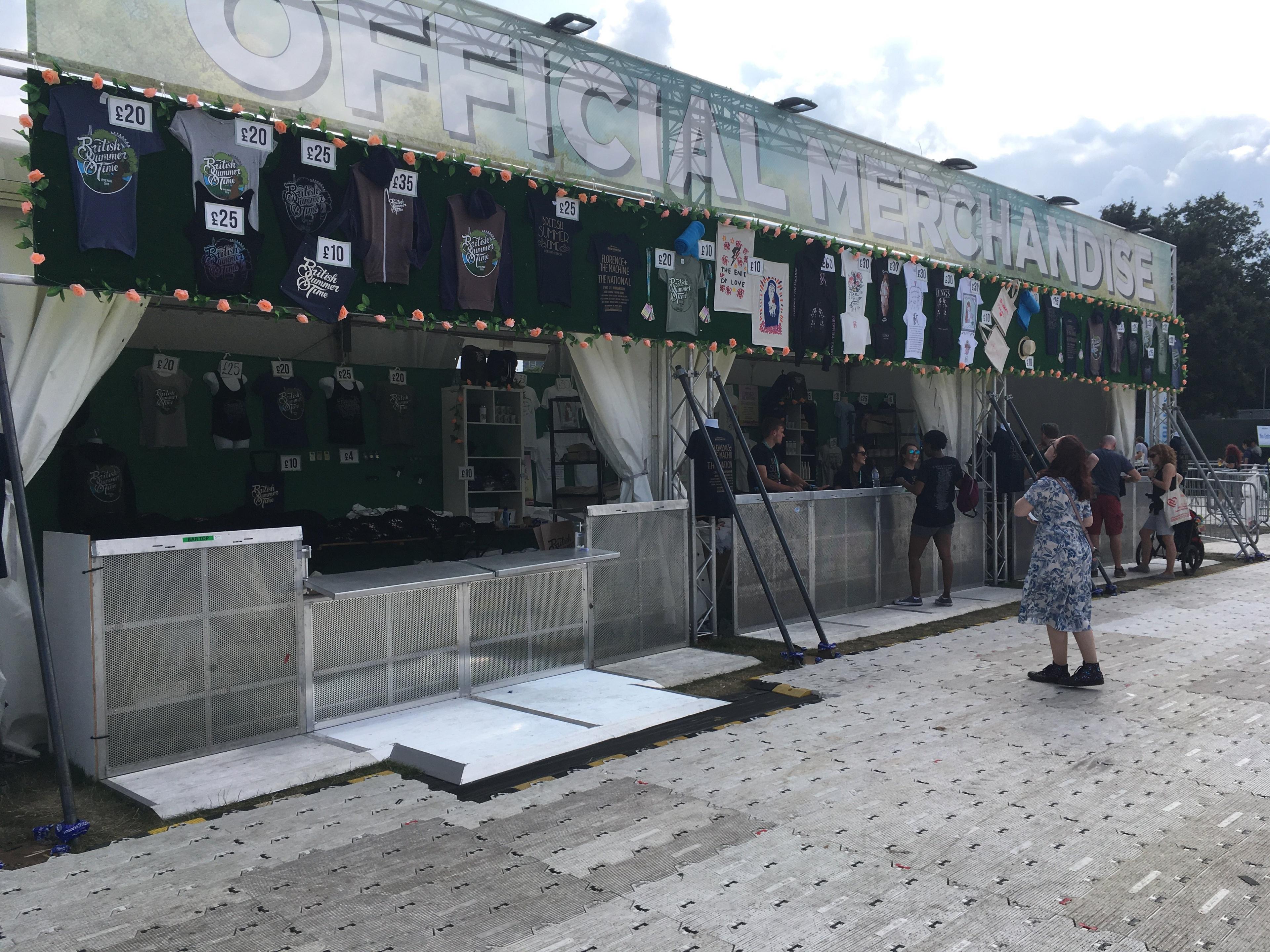
BST Hyde Park has dropped kiosks at its merchandise stalls for those in wheelchairs
Jamil wants more festivals to have a straightforward ticketing process, helpful and knowledgeable staff on site, and big enough loos.
And a good, well-positioned accessible viewing platform is always a bonus.
"Being able to get into the venue - if there's a wide enough entrance and exit, if there's any stairs. All these things you have to consider," he explains.
"But if those things are sorted then you can wind down and enjoy it just like everybody else."


Follow Newsbeat on Instagram, external, Facebook, external, Twitter, external and YouTube, external.
Listen to Newsbeat live at 12:45 and 17:45 weekdays - or listen back here.
- Published9 April 2019

- Published6 September 2018
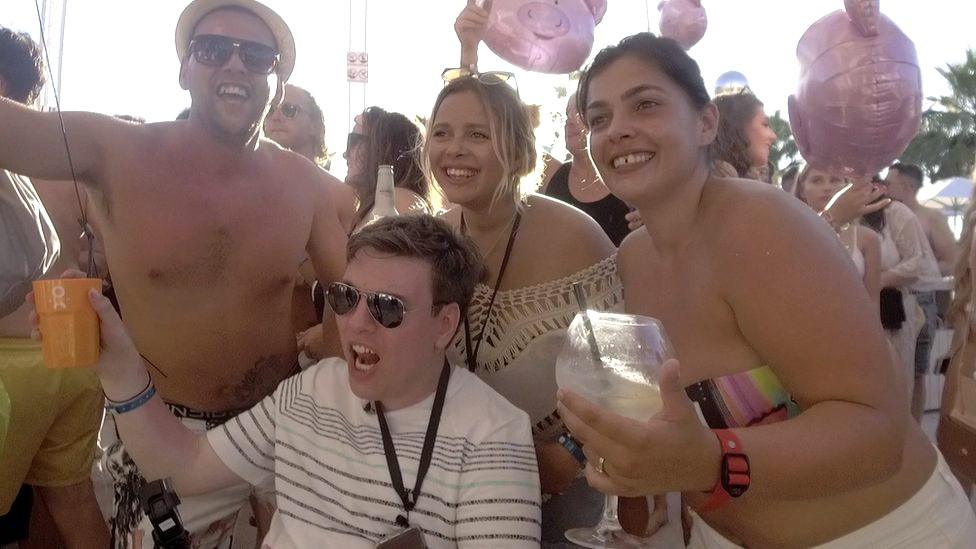
- Published5 July 2018
